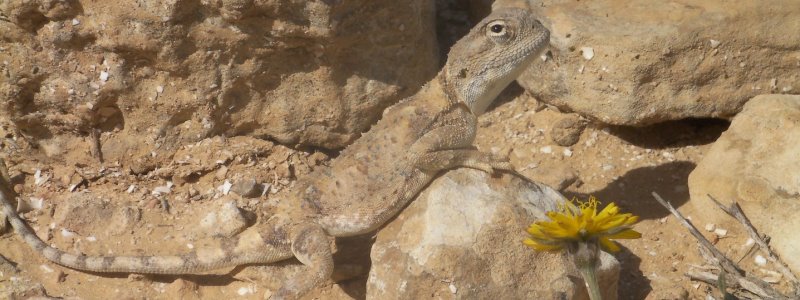
Deserts, far from being desolate wastelands, support an amazing variety of plants and animals, whose physiologies, morphologies, and behaviors are adapted to harsh conditions. Thus, deserts offer natural laboratories for studying natural selection in action. Moreover, deserts offer simple, transparent systems for studying the consequences of these selected traits for individuals, populations, and communities. Deserts often inspire new theories in ecology and provide the crucible in which we test them.
Research at the Mitrani Department of Desert Ecology MDDE spans the spectrum of biological organization, including the genetic, physiological, behavioral, population, community, and landscape ecology of desert plants and wildlife. A broad range of animals competing for limited resources are under study, among them, spiders, insects, birds, lizards, ungulates, rodents, bats, onagers, and other mammals. Cutting-edge research ranges from promoting the reintroduction of extirpated fauna and flora to the Negev Desert, to studying the physiological basis of ecological interactions, to viewing species interactions as foraging games. These advances in ecological understanding serve as tools for conserving biodiversity, developing better understanding and managing ecosystems of all types.
A wide variety of research projects are available to graduate students for thesis work.
